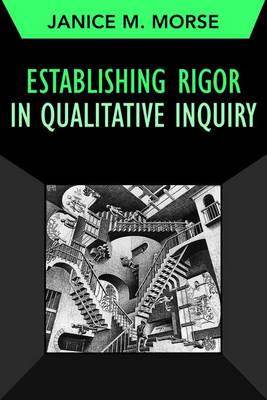Developing Qualitative Inquiry
3 total works
Establishing criteria for rigor in qualitative studies has been a long-standing dilemma with a series of alternatives to traditional quantitative reliability and validity measures developed, argued, and modified. In this thoughtful volume, Janice Morse, the leading figure in qualitative health research, contends we need to return to traditional social science methods of assessing rigor that can validate qualitative research to the broader academic community. She then establishes a new approach that obligates the researcher to establish rigor in a stepwise fashion throughout the course of a study. Her book* critiques the various alternative methods of assessing rigor developed by qualitative researchers;* establishes a transparent set of methods for attaining rigor that vary depending on the nature of the study, including prolonged engagement; persistent observation and thick description; inter-rater reliability; negative case analysis; peer review or debriefing; clarifying researcher bias; member checking, external audits, concordance and coherence; * links the development of rigor with theory, generalizability, and methodological appropriateness of research design.
Developing Grounded Theory
by Janice M. Morse, Barbara Bowers, Kathy Charmaz, Adele E. Clarke, Juliet Corbin, and Phyllis Noerager Stern
Published 1 July 2016
Grounded theory is the most popular genre of qualitative research used in the health professions and is widely used elsewhere in the research world. In this volume, six key grounded theory methodologists examine the history, principles, and practices of this method, highlighting areas in which different strands of the methods diverge. Chapters cover the work of Anselm Strauss, Barney Glaser, Leonard Schatzman, and the postmodern and constructivist schools. Dialogues between the participants sharpen the debate and show key topics of agreement and disagreement. This volume will be ideal for courses on grounded theory that wish to show the ways in which it can be used in research studies.
The use of mixed methods designs for conducting research has become a major trend in social science research. Renowned methodological experts Janice Morse and Linda Niehaus present a guide to intermediate and experienced researchers on the possibilities inherent in mixed method research. They offer the basic principles of conducting this kind of study, then examine a wide variety of design options available to the researcher, including their strengths and weaknesses and when to use them. Providing examples from a variety of disciplines, examining potential threats to validity, and showing the relationship between method and theory, the book will be a valuable addition to the methodologist’s library and a useful text in courses in research design.


